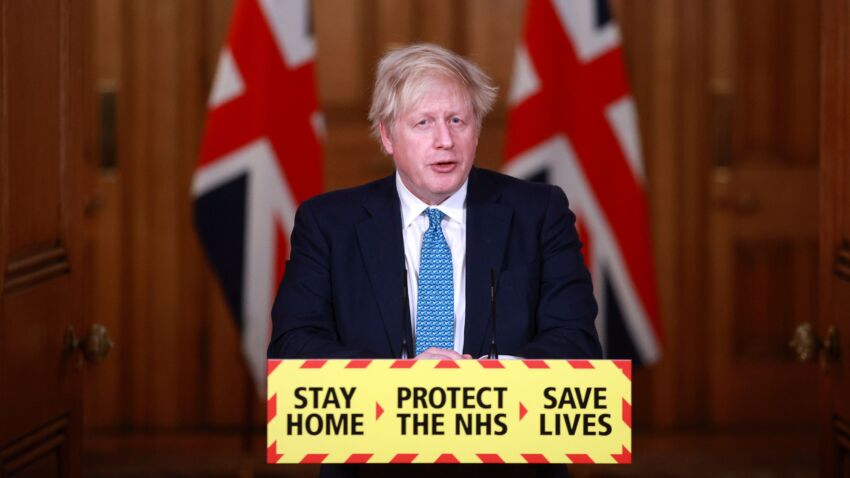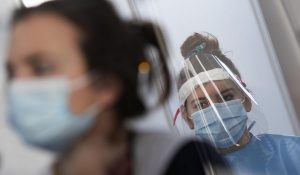As a new coronavirus variant forces the United Kingdom into another lockdown, Harvard disease expert Marc Lipsitch says it’s time for officials in the United States to focus on the exceptionally contagious mutation.
“I think that the new variant is a really big deal,” Lipsitch, a professor of epidemiology and director of the Center for Communicable Disease Dynamics at the Harvard T.H. Chan School of Public Health, told reporters during a conference call Tuesday.
According to the Centers for Disease Control and Prevention, the infectious new variant that emerged in the United Kingdom appears “to spread more easily and quickly than other variants.” While there’s no evidence that it’s more deadly, researchers have estimated that the British variant is between 56 percent and 70 percent more transmissible than previous mutations of the virus.
On Monday, England and Scotland announced that they would join the rest of the United Kingdom in lockdown, closing schools and businesses and reissuing an stay-at-home order, after the variant-fueled surge pushed COVID-19 hospitalizations in England above their April peak.
Given its rapid spread across the United Kingdom and into at least three dozen other countries, as well as the United States’ “very primitive system” of disease surveillance, Lipsitch said the variant is “probably more widespread than we think.”
The variant has been officially identified in four American states: Colorado, California, New York, and Florida.
However, while Massachusetts has yet to report a confirmed case, Gov. Charlie Baker told reporters Tuesday morning that officials can only assume that the variant has reached the state undetected.
“I think most of us are working on the assumption that it’s here,” Baker said. “I mean, there’d be no reason not to, given the contagious nature of this new variant.”
Experts say they believe that the newly approved COVID-19 vaccines offer effective protection of the variant. But as the rollout in the United States and other countries just begins to get underway, some are calling for additional action. A study released last month by British researchers suggested that officials may not be able to control the spread without closing schools, adding that it also “may be necessary to greatly accelerate” the vaccine rollout.
Lipsitch said there’s “good reason to expect” that the variant’s rapid spread seen in the United Kingdom will be repeated elsewhere.
“That just makes this a much harder problem,” he said. “And it emphasizes the need for as rapid as possible vaccination. It also, in my view, means that we should focus our control efforts very much on that variant.”
Lipsitch, who has been critical of contact tracing efforts in the United States, said officials should focus on isolating identified cases of the COVID-19 variant before it becomes widespread, if possible.
“One of the reasons it’s been a challenge to do good contact tracing is that we have so many cases,” he said. “At the moment, we don’t have so many cases, probably, of this new variant. So to the extent that we can find those and preferentially stop the spread — it won’t be perfect, it will be far from perfect — but anything we can do to delay the spread of this new variant virus will make control easier and will help us in the race to get more people vaccinated.”
Get Boston.com’s e-mail alerts:
Sign up and receive coronavirus news and breaking updates, from our newsroom to your inbox.



















